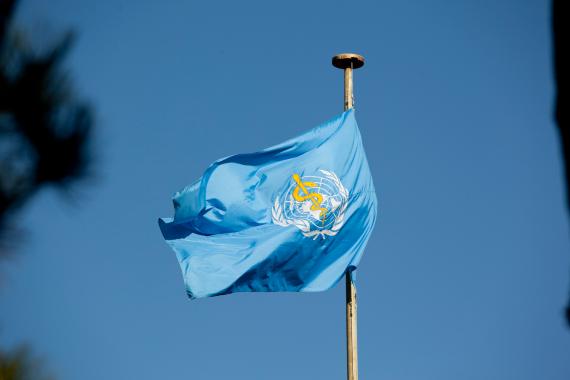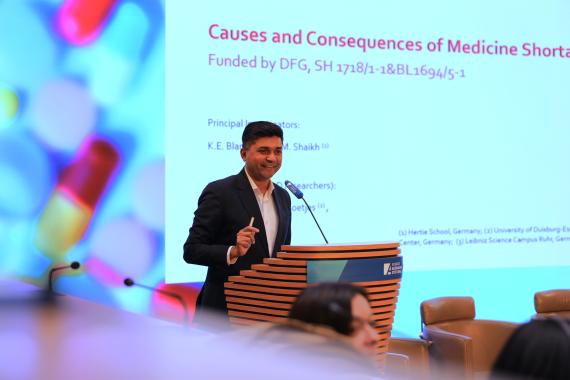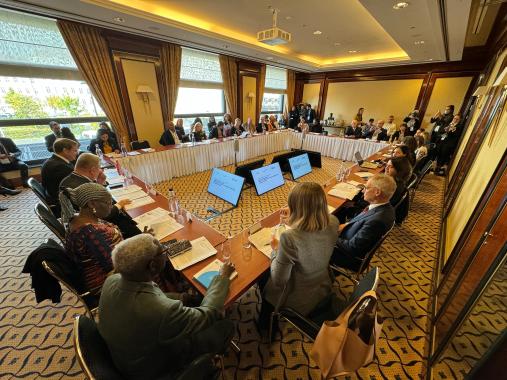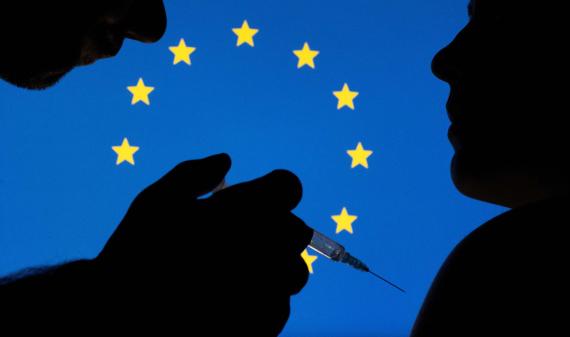Health is the key to a better future for all.
At a glance
- In addition to combating diseases, global health policy focuses on strengthening and increasing the resilience of health systems and improving living conditions in general.
- Technical innovations and sustainable lifestyles that protect biodiversity, the climate and the environment play a special role in creating resilient health systems.
- Germany supports the WHO as a key player in global health policy and is internationally committed to multilateral initiatives in order to better meet global challenges.
- The Konrad-Adenauer-Stiftung sees global health policy as an important cross-cutting issue that must be considered from different perspectives and in conjunction with other policy areas.
- One focus of our work on global health is advising and networking political decision-makers in Germany and abroad.
Content
1. The importance of global health for us
2. Global health as an interdisciplinary challenge
4. Germany’s role in global health
5. The work of the Konrad-Adenauer-Stiftung in this field
6. Our offers and projects on the topic
7. Publications, events and media contributions on the topic
The importance of global health for us
It’s not only a global pandemic like the COVID-19 that highlights how deeply global health issues affect us all. According to the WHO, some of the major health threats include air pollution and climate change, non-infectious diseases such as cancer, diabetes, and heart conditions, rising antibiotic resistance, and an increasing number of people refusing vaccinations. Beyond these, there are numerous health risks that may initially seem to affect primarily developing countries and crisis regions, but their potential danger becomes global when viewed through the lens of a pandemic.
Global health as an interdisciplinary challenge
Global health policy goes beyond just combating diseases; it also focuses on strengthening health systems and improving living conditions. This includes important measures like protecting biodiversity and enhancing health literacy. Effective global cooperation is vital for exchanging information and distributing medical supplies.
Health itself depends on various factors such as education, social participation, and the environment. This holistic view is reflected in the United Nations Sustainable Development Goals (SDGs), especially Goal 3: “Good Health and Well-being.” The related policy approach is aptly named “Health in All Policies.”
Building resilient health systems is crucial to prepare for future pandemics. Innovations in healthcare have proven essential, as seen in the rapid development of diagnostic tests and the swift rollout of effective vaccines during the COVID-19 pandemic.
The WHO as a central actor
The World Health Organization (WHO) plays a central role in addressing global health challenges. In recent years, new actors such as philanthropic foundations and specialized organizations have joined the effort. Emerging challenges like climate change and pandemics demand that global health policy continuously adapt and evolve.
Germany’s role in global health
Germany supports multilateral initiatives such as international pandemic treaty and a financially strong WHO. Key priorities of German global health policy include combating antibiotic resistance, tackling non-transmittable diseases, and researching neglected tropical diseases. The COVID-19 pandemic has delayed many progresses and calls for renewed focus to achieve the Sustainable Development Goals.
The work of the Konrad-Adenauer-Stiftung in this field
Through events, studies, and analyses, the Konrad-Adenauer-Stiftung actively engages in political and societal debates on major global health issues. We do not view health as an individual topic but examine the discussions from multiple perspectives. To this end, we connect actors from politics, industry, science, international organizations, and non-governmental organizations.
The Konrad-Adenauer-Stiftung is actively engaged in global health both in Germany, particularly in Berlin, and around the world through its international offices. Our Geneva office, located near the headquarters of the World Health Organization (WHO), focuses intensively on this topic. Global health is also a key area of work in other offices with a multilateral orientation, such as those in Washington D.C., Addis Ababa, and Brussels, where we foster dialogue and cooperation with international experts.
Key topics we address in more detail include:
- The international pandemic treaty and the reform of the International Health Regulations
- Inter-sectoral health partnerships
- Artificial intelligence and health systems
- Causes and consequences of medicine shortages
- Antimicrobial resistance (AMR)
- Women’s health
- Scientific cooperation on neglected tropical diseases (NTDs)
- Europe as a global health actor
- Innovation and diagnostics
Working Group Global Health
Improving health systems around the world is a prerequisite, indicator and outcome of sustainable development and a basis for the stability and well-being of a society. This is why the Konrad-Adenauer-Stiftung is using its working group to pool and consolidate expertise on the topic of global health. The goal of the working group is to continue dialogue on current global health issues and to provide a platform for exchanging knowledge and opinions where experts from politics, science, civil society, business and health organisations can share their knowledge and contribute their ideas. Members of the working group meet regularly to discuss current issues and political developments in this area and to develop appropriate solutions.
At their meetings, the members of the working group discussed the following topics, among others
- The impact and benefits of digitalisation and AI for global health
- Women's health and the “Women's Health Innovation Opportunity Map”
- Current status of negotiations on an international pandemic agreement
Event series
The Konrad-Adenauer-Stiftung does not currently offer its own series of events that are explicitly and exclusively dedicated to the topic of global health. However, we have been represented with an official side event at the World Health Summit since 2022.
Side Events at the World Health Summit
The World Health Summit (WHS) is an annual international conference on global health that brings together over 3,000 people from politics, science, the private sector and NGOs. Since 2022, the Konrad-Adenauer-Stiftung has always been present at the WHS in Berlin with an official side event and thus participates in the interdisciplinary dialogue.

































